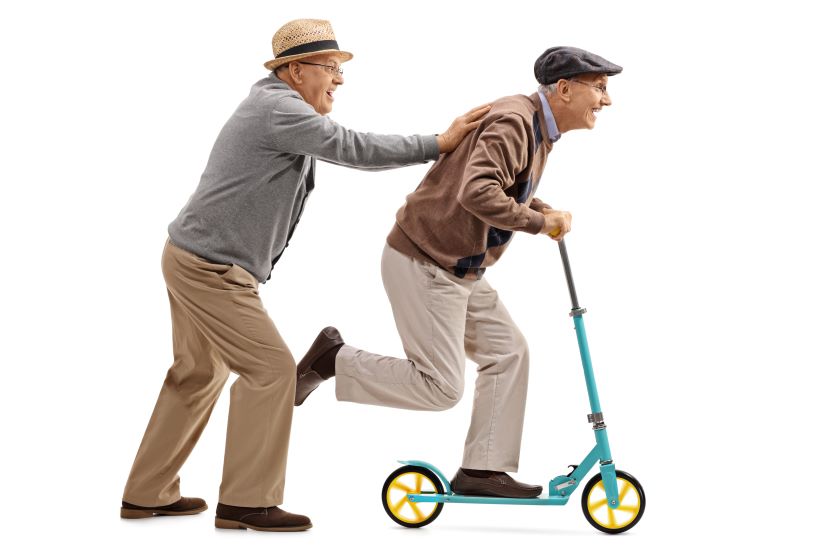
The AARP Family Caregivers Discussion Group is a helpful resource for me at Personal Money Manager.™
In this on-line group a recently-widowed senior posted his lament: I know I should be getting out more . . it would lift my spirits . . . but there’s no one in my life now who will make me.
Working with senior clients and their financial caregivers, this is a sentiment I often hear. Many clients are solo agers who miss that person who “made them” work on their “to-do’s” and . . . the fun stuff, too. Scootering, anyone?
At Personal Money Manager™, I focus on paperwork and household financial tasks. Depending on the person and situation, I am asked to be prompter, prodder, or the person who takes on the dreaded paperwork and financial organizing altogether. (I also encourage clients to find time for relaxing and fun activities, too.)
According to the American Society on Aging, the U.S. has the greatest number of seniors living alone than anywhere else in the world. Many had partners or extended family who, like the AARP contributor, they relied upon to encourage them, bounce ideas off of, act as guardrails for, and more. But the passage of time and ill-health throws off the balance and removes important supports clients once had in place.
Which leaves many seniors to actively develop a back-up support system which often includes hiring professionals to fill in any gaps.
One client is a ninety-year-old woman. As a caregiver for her husband and a planner extraordinaire, she had set up a web of helpers and potential helpers. By thinking ahead, developing and “working her network” for good people, she was able to stay independent long after her husband’s disability and passing. When she needed more assistance—she had people in place or in the wings that she knew she could call on.
Another client, on getting a diagnosis of Parkinson’s, approached his financial advisor about putting in place a financial guardrail for his wife. “When I can’t do it, she will need someone to keep her on a budget,” he explained. And, while he was still able, he worked to get the two communicating without him as the intermediary.
Others have identified informal “accountability partners”. These are reliable friends or family who know when encouragement is needed. Maybe it’s a neighbor who gets them out the door for a walk no matter how chilly (or humid) the weather.
Another solution is an in-person or virtual “body double,” but not the Hollywood kind. ADDitude Magazine says a “body double” is a companion who sits with a person as they tackle tasks that might be difficult to focus on when on their own. Online, virtual co-working or virtual organizing groups provide time and space for each participant to focus on their work at hand.
For reliable “in real life” resources, first reach out to people you know and trust. Next, contact the local Office of the Aging, aging in place organizations and locally, NY Connects, and the new Isolation to Connection Program in Westchester County, NY.
In the on-line discussion group, there’s no way to know if the contributor found the response he was looking for. He got lots of good ideas, such as the ones above, as well as: Reach out to friends. Find a therapist. Be your own “nudger”. Give yourself more time to adjust.
I do hope that putting his challenge into words and sharing it was a helpful first step for him. I know it was for me. After all, it inspired a newsletter and this blog post!
Photo Credit: ID 81228614 | © Ljupco | Dreamstime.com |
Personal Money ManagerTM is a division of Positive Employment Practices, Inc.
